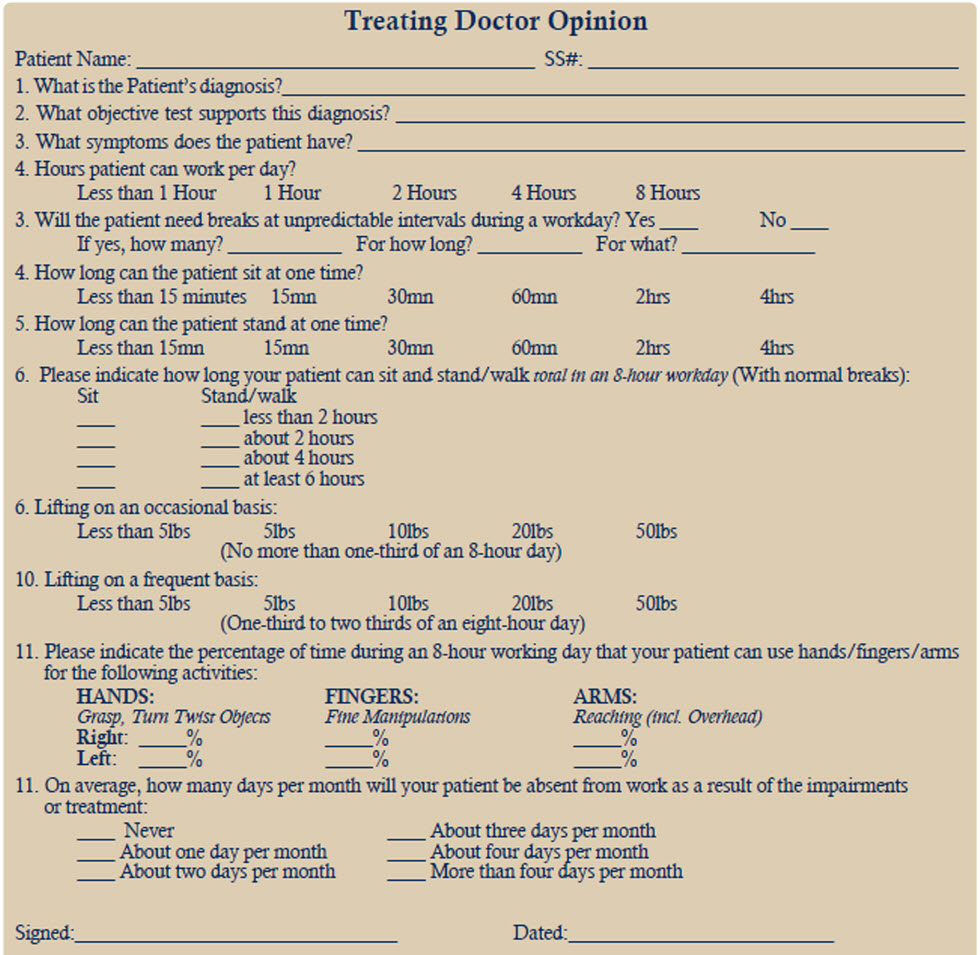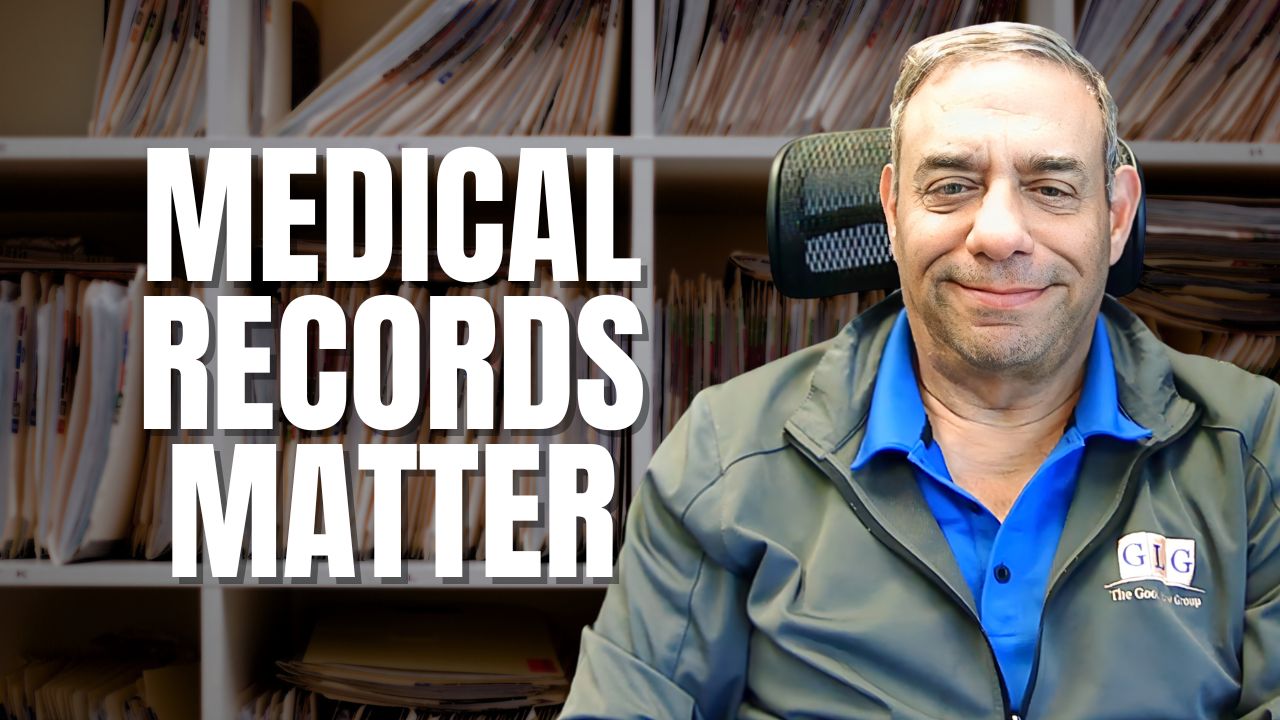How can a claimant go to the doctor and be diagnosed as disabled yet the Social Security Administration(SSA) denies the claim for SSD, stating that the patient is not found to be disabled? What does the SSA want? The Social Security Administration is looking for three pieces of evidence.
Evidence of Disability
- Objective evidence of the diagnosis. Examples include an MRI, X-Ray, blood test or colonoscopy results.
- Consistent written documentation of the symptoms relating to the diagnosis. This could include such symptoms as severe fatigue, pain when sitting and/or standing, or frequent urination (such as going to the bathroom eight times a day).
- The treating physician’s opinion of the patient’s residual functional capacity (RFC) as defined by the SSA. This is the most important piece of evidence the SSA is looking for and should include, as it relates to the diagnosis, the number of hours a person can work, sit, stand or walk; the patient’s break frequency and activity during that break; the number of days the patient takes off per month as a result of the diagnosis; maximum lifting capacity and any limitations on the use of fingers, hands and arms.
What is Residual Functional Capacity?
Residual Functional Capacity(RFC) is the most a patient can do, in a work setting at a 40-hour-a-week job, despite his or her limitations. This information is not typically in a doctor’s medical records because it’s not relevant to the treatment of the patient. The SSA obtains the medical records and then sends those records to a SSA doctor. That doctor gives an opinion on the patient’s RFC.
Most treating doctors don’t even evaluate the patient’s RFC so that information is not in medical records. Thus, the SSA has only one opinion to weigh, that of the SSA doctor. The SSA typically finds the patient not disabled based on the only medical opinion it has of the patient’s all-important RFC.
How can doctors help their patients obtain the disability benefits they need and deserve? Here is a general RFC form that will help doctors provide the information that Social Security seeks. The information on the form will assist Social Security in evaluating the treating doctor’s opinions of a patient’s limitations, based on the symptoms, tests and diagnoses.
Do you need help with your SSD case? Consider the Law office of Neil H. Good for your representation. Contact us online for a free case evaluation or call #(847) 577-4476.









